This post contains affiliate links to Bookshop.org which supports independent book stores around the country while giving you the convenience of ordering online. I receive a small percentage of sales made through these links.
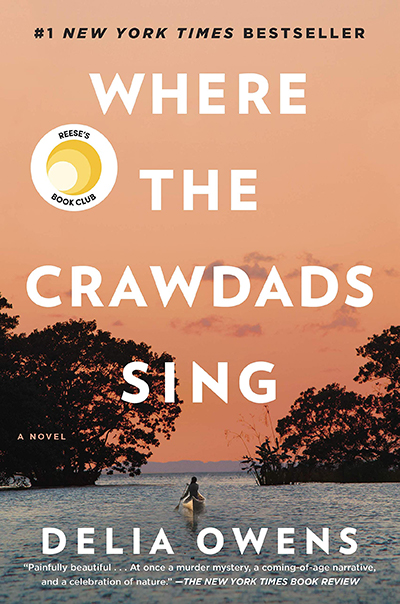
Where the Crawdads Sing
by Delia Owens
Published: August 14, 2018
Genres: Adult Fiction
Format: Hardcover (384 pages)
Source: Library
moreFor years, rumors of the “Marsh Girl” have haunted Barkley Cove, a quiet town on the North Carolina coast. So in late 1969, when handsome Chase Andrews is found dead, the locals immediately suspect Kya Clark, the so-called Marsh Girl. But Kya is not what they say. Sensitive and intelligent, she has ...
I started reading Where the Crawdads Sing right before the coronavirus hit my state in March 2020. Just as things started to take a turn for the worst in the book for the main character Kya, my family went into self-isolation. I almost couldn’t finish reading it because I couldn’t handle even one more thing going wrong, even if it was fiction. But I’m glad I read this. I found that I related to Kya’s loneliness more than I normally would have. In fact, when we discussed this at book club the first question that the host asked, which she had written before we all went into self-isolation, was how isolation affected Kya. And then added a follow up question of how had isolation affected us which made everyone laugh. But we also had a good discussion. “How much do you trade to defeat lonesomeness? (Pg 163)” After Covid-19, that doesn’t feel like such a rhetorical question anymore.
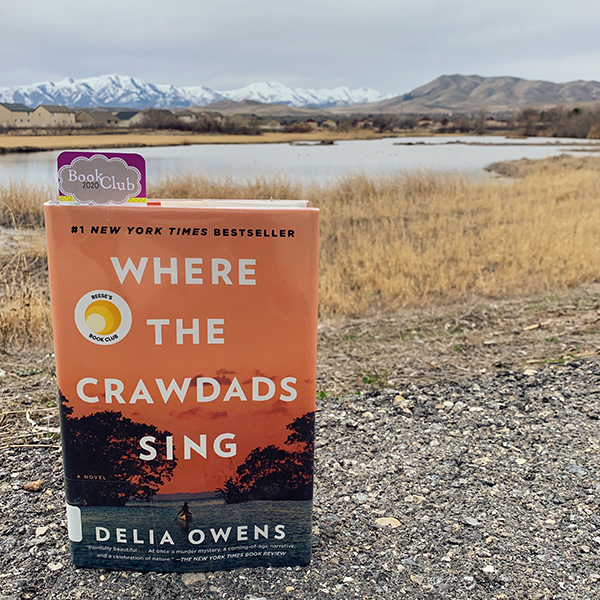
The swamp almost felt like a character. Everyone leaves her except the land. “Whenever she stumbled, it was the land that caught her. (pg 34)” It reminded me of Tara in Gone with the Wind. Kya is so young when her older siblings leave that she can’t even remember their names. She wonders why no one takes them with her. I wondered that, too. Because of Kya’s isolation, she has a special relationship with the land. “Kya laid her hand upon the breathing, wet earth, and the marsh became her mother. (pg 34)” It’s beautiful how literal that statement turns out to be. She learns from the minnows how to live with her abusive father. “Just keep out of the way, don’t let him see you, dart from sunspots to shadows. (pg 16)” But nature doesn’t have all the answers. She can’t figure out in all the biology that she studies “why a mother would leave her offspring. (pg 131)”
Kya was such an endearing, innocent, and relatable character. “She wanted to learn to read and what came after twenty-nine. (pg 27)” I just wanted to hug her when she couldn’t remember how to pray when she desperately needed help. I wanted to adopt her when the kerosene lights went out in her house the first time she was all alone. She was too young to realize that was even a chore that needed to be done. My heart ached for the little girl alone in the dark. Kya struggled to connect with people. For some reason, this quote really seemed to capture one of the biggest reasons she didn’t fit in: “Barkley Cove served its religion hard-boiled and deep-fried. (pg 66)” She didn’t know any of the names of the girls who were her age, so she gave them nicknames like “Tallskinnyblonde.” There’s something fascinating about the way Kya describes nature that makes it so relatable like her description of hens killing a wounded bird so it won’t attract predators. When Kya described it, it sounded less like a biology lesson and more like an accurate description of how the town treated her. By far my favorite observation of Kya’s was this: “Kya knew it wasn’t so much that the herd would be incomplete without one of its deer, but that each deer would be incomplete without her herd. (pg 272)” Right now, I can relate to that feeling of being incomplete without my “herd” a lot.
I was pleasantly surprised by the murder mystery story line. I wasn’t expecting it. And naturally, the more you read the more you wonder if maybe Kya is the murderer. I kept track of all the clues that it might be her. But then I couldn’t help wonder if I was prejudiced like the people in the town. And I had no idea what to do with the even more compelling clues that it wasn’t her. It had me guessing until the very end and I loved it. The cops were unexpectedly funny which I loved, too. I adored Where the Crawdads Sing. And it seems like I read it at the perfect time. It was exactly the story I needed right now.
Book Review of Where the Crawdads Sing on a Post-it
I post reviews like this on Instagram. Be sure to follow me there!
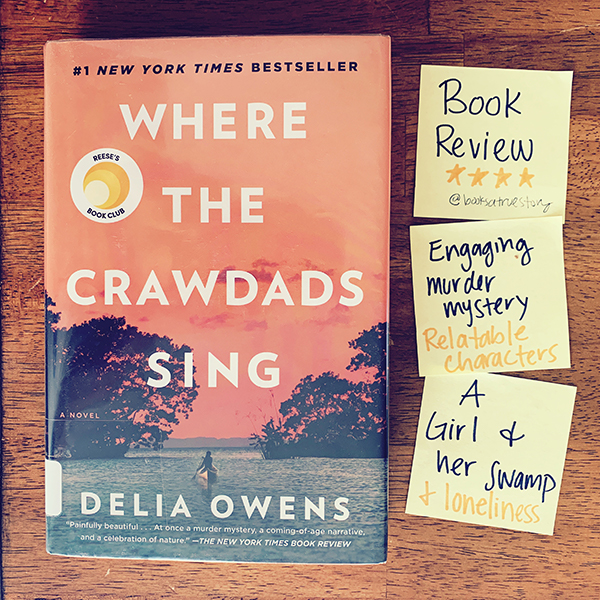








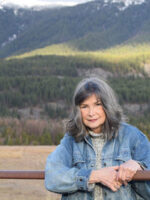
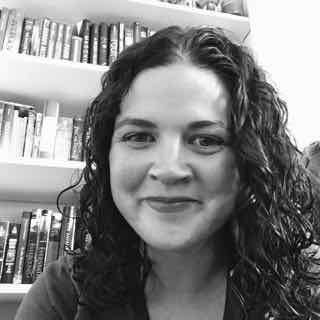 My name is Jessica. I love to read Young Adult and classic literature. I’ve been a book blogger for six years and I haven’t gotten tired of it yet. I’m a very curious reader. Writing about all the questions and thoughts I had while reading a book is the best hobby ever.
My name is Jessica. I love to read Young Adult and classic literature. I’ve been a book blogger for six years and I haven’t gotten tired of it yet. I’m a very curious reader. Writing about all the questions and thoughts I had while reading a book is the best hobby ever.
I didn’t realize that Owens had worked as a wildlife scientist, but Crawdads is such a wonder of a book. It’s on my top ten list for the year. I read it a month or so “BC”. Thanks for the review — I enjoyed revisiting Kya and the exquisite nature writing through it. :)